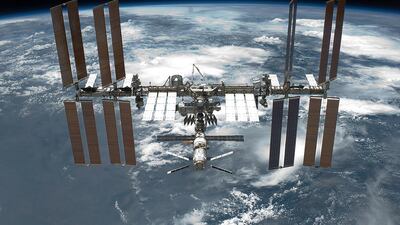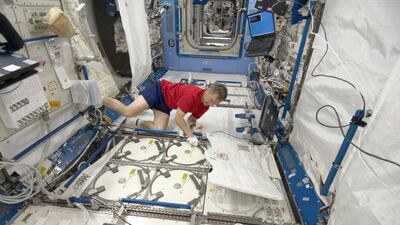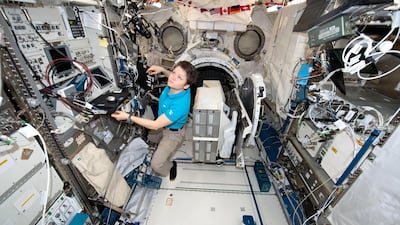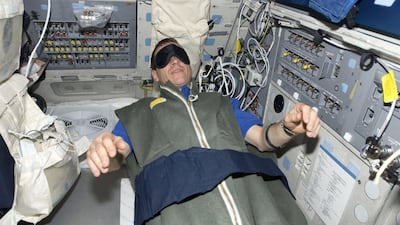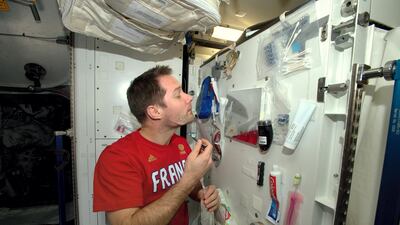Live updates: follow the latest news on Russia-Ukraine
What does a potential war between Ukraine and Russia mean for the International Space Station?
The jointly-run ISS has managed to stay out of political struggles for two decades.
Now, Western powers have begun imposing sanctions on Russia for sending its troops into eastern Ukraine after numerous failed peace talks.
The space station, which is built upon a partnership between the US, Russia, the European Space Agency, Canada and Japan, has remained shielded from the geopolitical battle so far.
The current ISS crew consists of two Russians, four Americans and one German.
Dmitry Rogozin, chief of the Russian space agency Roscosmos, said on Tuesday that he values the partnership with its US peer, Nasa.
“We treasure our relationship with Nasa. Regardless of disagreements between our countries, [we] will make every effort to continue as before,” he tweeted.
“We really value our professional relationship with Nasa but as а Russian and citizen of Russia, I am completely unhappy with the sometimes openly hostile US policy towards my country.”
A civil relationship in space between the US and Russia has helped in bringing about the smooth operation of the space station since its first components were put in orbit more than 20 years ago.
However, Russia used it as a bargaining chip during the 2014 annexation of Crimea, when the US was reliant on the Soyuz rocket and spacecraft to send its astronauts to the station and bring them back safely.
Back then, the US had imposed heavy sanctions on Russia and a number of its officials, including Mr Rogozin.
“After analysing the sanctions against our space industry, I suggest the US delivers its astronauts to the ISS with a trampoline,” Mr Rogozin tweeted at the time.
Despite the threats, the two countries remained civil in space and the ISS continued to operate normally.
Now, the US has access to Elon Musk's SpaceX rockets and the Dragon crew capsule that can deliver astronauts to the space station.
But it is clear that the US-Russia partnership in space is because of technical reasons, with both the American and Russian segments on the ISS heavily reliant on each other.
US and Russia need one another to run ISS
The US relies on the Russian segment of the station for propulsion while the Russians are dependent on the US for electrical power.
With the current political struggles, it is unclear how much longer the relationship in space will last.
Pete Harding, ISS editor for the NasaSpaceflight news website, said Russia could not simply “withdraw” propulsion support from the US segment.
“Since both segments are physically attached; that would involve also withdrawing it from themselves, with the end result being that both segments would eventually fall back to Earth,” he said in a thread on Twitter.
Nasa has already announced that it intends to retire the ISS in 2031, with Russia planning to launch its own space station in 2030.
Russia is building on its partnership with China to prepare for this new space era that is focused on the Moon and beyond.
It has refused to participate in Nasa's Artemis programme, which aims to build a sustainable presence on the Moon.
Instead, Russia has joined forces with China, which has its own complex relations with the US, to build a base on the lunar surface.
